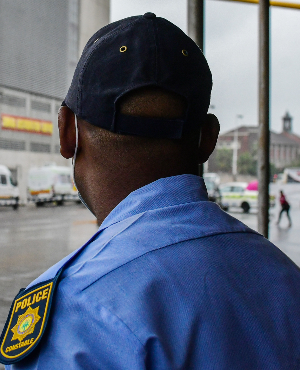
Well into the sixth day of the nationwide 21-day lockdown, many are counting down the days to a return to “normal”. However, health minister Dr Zweli Mkhize said during a press conference in Durban yesterday that going back to “normal” life is highly unlikely.
After noting a reduction in the increase rate of infection, Mkhize said even at the end of the lockdown it is unlikely that the country will be going back to “normal”. This after Dale Fisher, chair of WHO’s Global Outbreak Alert and Response Network, said a lockdown is “not an intervention”, after an evaluation of countries who have gone into lockdown and those who haven’t had to.
Fisher’s comparison mainly focused on countries such as India, France, Italy and Spain who have had to go into lockdown. While Singapore, which has imposed more restrictive measures recently, has essentially kept schools and businesses open but with precautions. The Asian country was quick to implement precautions after China reported its first cases of Covid-19 in Wuhan.
This lead time allowed Singapore to identify and isolate cases, says Fisher, and that is what countries currently in lockdown still have to do. “So (a) lockdown is really any country’s second chance – it’s not an intervention in itself. It’s just buying time to set up all those measures of your testing and how you’re going to isolate the cases and how you’re going to enforce quarantine in close contact,” he told CNBC.
Shabir A Madhi, professor of vaccinology at Wits University, concedes to this point, highlighting that the government has taken a step in the right direction with the announcement of door-to-door testing that President Cyril Ramaphosa announced on Monday. This is an essential response he said because “the major bottleneck is the ability to scale up testing immediately, which includes being less restrictive in the criteria used for testing.
“This will require close to a 30-fold increase in our current testing rate, and results need to be available within 24 hours of testing so that the isolation and quarantine can take place timeously.”
Meanwhile, Mkhize announced that they have increased their daily testing capacity to 3 000 tests and are looking into rapid test kits to use in conjunction with the polymerase chain reaction (PCR) tests. He noted the only concern they still have with the rapid tests was how it essentially tests for antibodies as opposed to the PCR test that shows viral particles pointing towards an active disease in the body. “They actually show the bodies response to fighting the virus, which means it might be positive now, but you have finished fighting the virus,” Mkhize said.
With an increase in Covid-19 cases in townships, Professor Adrian Puren, head of department at the Centre for HIV and STIs at the NICD, outlined people who are more at risk of contracting the virus. They are:
· People aged 65 years and older
· People who live in a nursing home or long-term care facility
· People with chronic lung disease or moderate-to-severe asthma
· People who have serious heart conditions
· People who are immunocompromised, including cancer treatment
· People of any age with severe obesity (body mass index >40) or certain underlying medical conditions, particularly if not well controlled, such as diabetes, renal failure or liver disease
· Pregnant women should be monitored too. However, to date, data on Covid-19 has not shown an increased risk in women who are expecting.


















